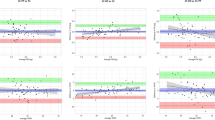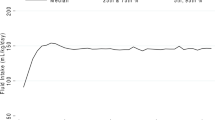Abstract
Summary: We measured body hydration of healthy, term rabbit pups at birth and 72 hr of age. In addition, we measured hydration of individual tissues: skin, skeletal muscle, liver, and brain. At birth, the hydration of lean body mass, skin, and skeletal muscle, expressed as cc water per g fat-free dry weight (FFDW) was inversely proportional to birth weight. Low birth weight animals were significantly better hydrated than their larger littermates.
During the first 72 hr of life, the nursing pups gained an average 31.39% of birth weight. Simultaneously, lean body hydration decreased by 23% (5.48 to 4.86 cc/g FFDW). The hydration change varied substantially among organs. The greatest loss occurred in skin (24%). Skeletal muscle lost 5.8%, and the brain lost 3.1%.
When hydration at 72 hr was compared to weight gain and by inference fluid intake, a paradoxical result was obtained. Lean body, skin, and skeletal muscle hydration was inversely related to weight gain. The animals that gained the most weight retained the least water. In contrast, the hydration of brain and liver was significantly higher in animals that gained the most weight.
We conclude that the newborn rabbit is endowed with a reservoir of fluid at birth, predominantly stored in skin and skeletal muscle. The rate of release of this store depends on fluid intake. It is rapidly lost if ample fluid intake is provided. In conditions of restricted fluid intake, the release is substantially slower.
Speculation: At least two processes regulate tissue hydration in the newborn rabbit. The first, a function of growth, is responsible for the progressive accretion of intracellular water during gestation and postnatal development. It is illustrated by the increase in tissue hydration of brain and liver in well-nourished pups during the first 72 hr of life.
The second process may be under hormonal regulation on a time scale of hr to days. It accounts for the relatively high level of tissue hydration at birth, and provides a supply of water and sodium to maintain plasma volume during the first days of life, thereby preventing dehydration during this period of variable fluid intake.
Similar content being viewed by others
Log in or create a free account to read this content
Gain free access to this article, as well as selected content from this journal and more on nature.com
or
Author information
Authors and Affiliations
Rights and permissions
About this article
Cite this article
Coulter, D., Avery, M. Paradoxical Reduction in Tissue Hydration with Weight Gain in Neonatal Rabbit Pups. Pediatr Res 14, 1122–1126 (1980). https://doi.org/10.1203/00006450-198010000-00007
Issue date:
DOI: https://doi.org/10.1203/00006450-198010000-00007



